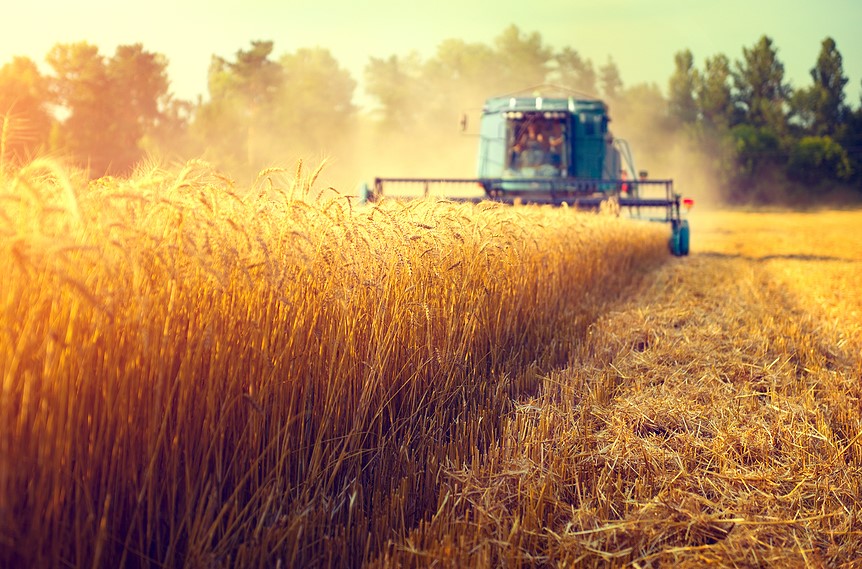News
Farming For Water With Severn Trent
It’s an inescapable fact these days that freshwater ecosystems around the UK are being put under increasing amounts of pressure, with climate change, extreme weather events, population growth, urbanisation, water mismanagement and pollution all taking their toll on both water quality and water quantity.
One of the leading sources of impact is agriculture, with river health affected by the likes of fertilisers, manure, herbicides, pesticides and fungicides, all of which can be very difficult to trace and attribute.
When high quantities of nutrients make their way into the water from animal waste and fertilisers, it can cause excessive growth of aquatic plants – known as eutrophication.
This then leads to hypoxia, where the water becomes too low in oxygen to support aquatic life, or dead zones, as they’re also known. Furthermore, algal blooms can also develop, producing biotoxins that can kill fish and even cause human diseases.
Water quality can also be affected by excessive nitrate levels in drinking water, which can lead to blue baby syndrome (where infants experience low oxygen levels), as well as low birth weight.
Ensuring that farmers and others in the industry are up to date with all the latest innovative solutions available to protect river health and drinking water quality is one of the most effective ways to ensure success.
To this end, water supplier Severn Trent – which supplies 4.6 million households and businesses across the Midlands and Wales – has been operating its catchment management programme Farming for Water for the last ten years, working directly with more than 5,000 farmers to date and providing over 1,500 grants to help them operate more sustainably.
STEPS 2024
This year marks the tenth anniversary of the company’s Severn Trent Environmental Protection Scheme (STEPS), part of the Farming For Water programme, with grants available within its priority catchment areas. Packages have been made available for priority items, such as up to £30,000 for pesticide washdown areas, free rainwater harvesting, fencing grants and soil testing for cover crop applicants.
Grant rates have also been increased for many other items to protect the environment and water quality, with applications for those in priority catchments now open. Those interested in pesticide priority items should note that applications close on May 31st, while November 30th is the closing date for nitrate and cryptosporidium items.
In order to apply for a grant, your farm or land must be in a priority catchment area within the Severn Trent region. Each of these surface and groundwater catchments are affected by specific pollutants, everything from bacteria and nitrate to pesticides.
The scheme offers farmers and land managers (owners and tenants alike) both technical and financial support so they can invest in the most appropriate solutions for their specific circumstances. The overarching aim is to protect water quality and enhance biodiversity on farms throughout the region.
Priority items
There are various priority items you can consider for your business, depending on your local catchment area.
Pesticide washdown
Investing in a pesticide handling and washdown area protects the environment by ensuring that there’s a dedicated space to load pesticides safely into sprayers, while providing a safe area to house the sprayer and to clean, helping to keep pesticides out of waterways.
Lined biobeds
Biobeds are a way of providing on-farm treatment of dilute pesticide wastes, with the biomix contained within the biobed ensuring that pesticides in waste liquid can lock onto organic matter. Bacteria within the soil and the biomix then start to break these pesticide leftovers down slowly.
This is a good option for those farmers concerned about chemical and pollutant management, ensuring that additional barriers are put in place between the environment and contamination.
Arable grass margins
Establishing grass margins in fields can provide much-needed habits for a wealth of flora and fauna, but also helping to capture runoff and nutrients to stop them from entering waterways and causing pollution.
Riverside margins
If you have livestock grazing in riverside areas of your land, this can result in harmful pathogens making their way into the water. You can prevent this, however, by establishing riverside margins to stabilise river banks and reduce the risk of soil erosion.
Furthermore, such installations can prevent runoff, nutrients, sediments and pathogens from entering the water.
Precision pesticide application technology
Investing in precision spraying equipment means you can enjoy greater accuracy and efficiency when spraying pesticides, reducing the risk of polluting the natural environment. Added benefits include making your operations more efficient through improved speed of field operations, better crop health and lower fuel consumption.
Arable reversion
Only available in Severn Trent Water groundwater catchments, arable reversion in low input grassland can reduce nutrient losses and help support the soil, making it more stable, with the aim being to slow or reverse groundwater nutrient levels.
Cover crops
Cover crops in agriculture are those that are planted with the intention of covering the soil, rather than for harvesting. This way of working can help manage soil erosion, improve soil fertility and quality, improve water management and control weeds, pests and diseases, supporting local biodiversity and wildlife.
These crops can help prevent nitrogen leaching into groundwater, as well as protecting the surface of the soil from periods of heavy rainfall. This in turn reduces runoff, surface capping and erosion.
Water supply pipes
By giving your livestock access to your watercourses, you can cause erosion of the river banks, which then leads to soil loss and water contamination.
This can be avoided by establishing alternative drinking points across your land to stop animals from approaching rivers, reducing contamination, supporting wildlife and preventing loss of animals or injury along hazardous river bank routes.
Advice
All these grants and schemes are supported by free technical advice, and site visits to help farmers and landowners determine which course of action would be most appropriate. To find out more about the scheme, get in touch with Severn Trent directly.
